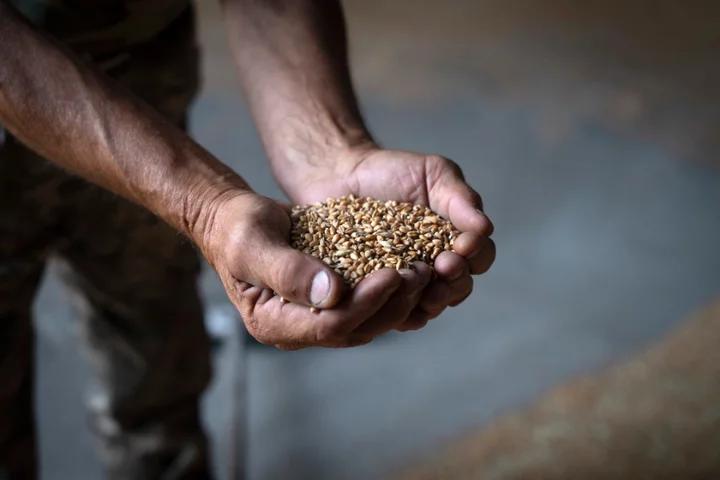
Poland stops sending arms to Ukraine as row over grain imports escalates
Poland said it will stop exporting weapons to Ukraine as a week of escalating tensions between the two countries reached boiling point over a ban on grain imports. Prime minister Mateusz Morawiecki said he would instead be investing the money in arming Poland, which has been one of Ukraine’s staunchest allies since Russia invaded last year, with the most “modern weapons”. The row between the neighbouring countries began last week when Poland imposed an import ban on Ukrainian grain, including wheat and maize, after an EU-brokered deal expired. The deal, which ended on 15 September, allowed Poland, Bulgaria, Romania, Hungary and Slovakia to ban the sale of Ukrainian grain, which they claim has flooded the European market and undercut domestic grain prices since Putin’s invasion, damaging their economies. But Ukraine launched a legal challenge at the World Trade Organisation (WTO) on Monday after Poland reinstated the ban, claiming the country had failed to meet its “international obligations”. Days after, Mr Zelensky told the United Nations General Assembly that “some friends in Europe” were feigning solidarity by indirectly supporting Russia by banning the sale of its grain. Poland then summoned the Ukrainian ambassador to its foreign ministry to protest against Mr Zelensky’s comments. Hours later, Warsaw announced it would no longer be supplying weapons to Ukraine. “We are no longer transferring weapons to Ukraine, because we are now arming Poland with more modern weapons,” the prime minister said. While the country claimed Ukrainian authorities “do not understand” the extent to which Poland’s farming industry has been “destabilised”, one expert claimed Poland was “losing its nerve”. “Poland is losing its nerve. It seems people are starting to get tired of the war, because there has been no breakthrough, there are corruption scandals, and Ukrainian grain imports are damaging the economy,” Dr Marina Miron, post doctoral researcher at King’s College London war studies department, told The Independent. She explained Poland’s upcoming general election on 15 October was crucial in explaining the ban. In recent weeks, Poland’s Law and Justice party has stepped up its rhetoric supporting farmers in recent weeks. “Poland is in its pre-election stage and needs to ensure domestic support,” Dr Miron added. However, Poland’s state assets minister Jacek Sasin claimed the row over grain imports did not mean Poland head ceased to back Ukraine against Russia. “At the moment it is as the prime minister said, in the future we will see. In this case, Polish interests come first,” he said. “We cannot disarm the Polish army, we cannot get rid of the weapons that are necessary for our security.” “Where we could arrange for the transfer of weapons, we did it and we were very generous in this matter. Here we have absolutely nothing to reproach ourselves with.” Poland has previously sent 320 Soviet-era tanks and 14 MiG-29 fighter jets to the war-torn country. Mr Morawiecki also issued a warning to Kyiv, saying that if they “escalate the conflict”, additional products will be added to the list of banned imports. He said: “I am warning Ukraine’s authorities. Because if they are to escalate the conflict like that, we will add additional products to the ban on imports into Poland.” Poland’s decision has been criticised around the world. Donald Tusk, a top EU opposition leader, accused Morawiecki and other ruling authorities of a “moral and geopolitical scandal of stabbing Ukraine in the back politically when they decide to fight on the Ukrainian front, just because it will be profitable for their campaign.” Michal Baranowski, security and defence expert, added: “The message is very bad, both for Poland’s reputation but also because Poland has been one of the chief advocates of military aid to Ukraine. Saying Poland will not be sending more weapons means that Poland can no longer play this role.” Read More Why has Poland stopped supplying weapons to Ukraine? Ukraine-Russia war - live: Major blow for Kyiv as Poland cuts off weapons and issues warning to Zelensky Zelensky accuses ‘some friends in Europe’ of playing into Russia’s hands
2023-09-21 23:17
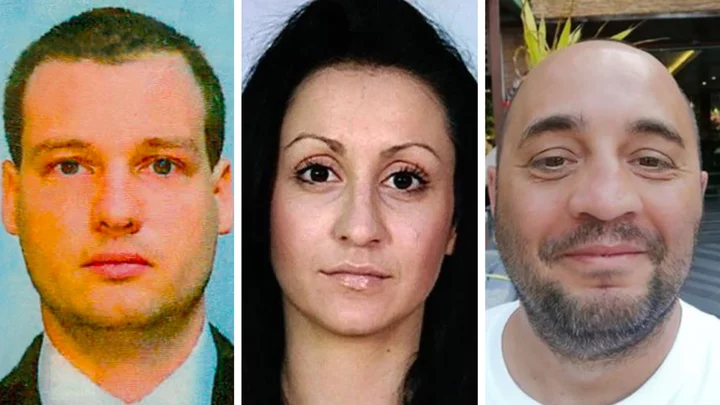
Five to be charged in UK with spying for Russia
Three men and two women are to be charged with conspiracy to conduct espionage, UK prosecutors say.
2023-09-21 21:24
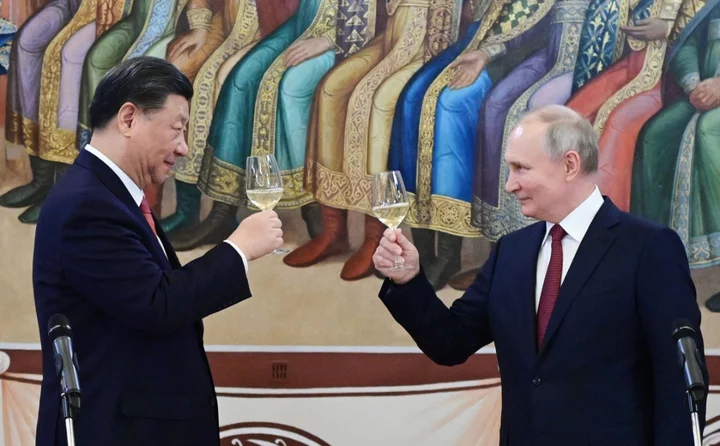
Putin trip to meet Xi in China confirmed for next month
Vladimir Putin has accepted an invite from Xi Jinping to visit China for a Belt and Road Summit being held in October in his first known trip abroad since an arrest warrant was slapped against him for the deportation of children from Ukraine. The Russian president recently met North Korean dictator Kim Jong-un and is looking to cement ties with a handful of allies after being isolated on the world stage due to his invasion of Ukraine. Russia and China are “integrating our ideas of creating a large Eurasian space”, Mr Putin said, adding that the Chinese-led Belt and Road initiative is a part of that. He announced his intention to visit Beijing after a meeting with Chinese foreign minister Wang Yi, who is in Moscow this week for a strategic diplomatic visit. Mr Putin told the top Chinese diplomat that the Belt and Road strategy “fully meets and coincides” with Russia’s interests, according to a statement by the Kremlin. He will be attending the summit in Chinese capital Beijing. “We believe in merging our vision of creating a Greater Eurasian space with the idea of our Chinese friends as part of the Belt and Road Initiative, and we have been quite good at synchronising our efforts,” he said. After invading Ukraine in February last year, Mr Putin has increasingly relied on seeking support from his allies in Asia, prominently China and North Korea. Russia has also amped up trade with China by selling it more energy and showing diplomatic bonhomie by carrying out joint military exercises. The talks in Beijing will be thorough, said Nikolai Patrushev, a close aide to the Russian president and the secretary of Russia’s Security Council. He said Russia and China should deepen cooperation in the face of the West’s attempt to contain them both. Both countries also have strained relations with the US, with Mr Xi briefly becoming the only foreign leader to have paid Mr Putin a visit in Moscow until recently, when Mr Kim revelled in his own six-day sojourn to Russia’s far east. A flagship initiative of Beijing, the Belt and Road project has been a key prospect for China to expand its influence in developing countries through infrastructure projects. On the continuing war in Ukraine, China has shown a neutral stand and has gone to the extent of criticising Western sanctions against Moscow and the arming of Kyiv by several Western nations. It also accused Nato and the US of provoking Russia’s military action and declared last year that it had a “no-limits” friendship with Russia. Earlier this year, CIA director William Burns said Russia was becoming more and more dependent on China and was even at risk of becoming its “economic colony” in time. Read More Why Vladimir Putin needs Xi Jinping now more than ever Why Vladimir Putin and Kim Jong-un are desperate for each other’s help Ukraine kills 130 Russian soldiers in single day in southern push Chinese foreign minister visits Russia for ‘security’ talks day after Kim Jong-un leaves country
2023-09-21 19:28

Analysis-Consumer goods firms' pricing woes may spread beyond France
By Richa Naidu and Helen Reid Consumer goods firms like Nestle, Lindt and Unilever may face increased pressure
2023-09-21 18:56
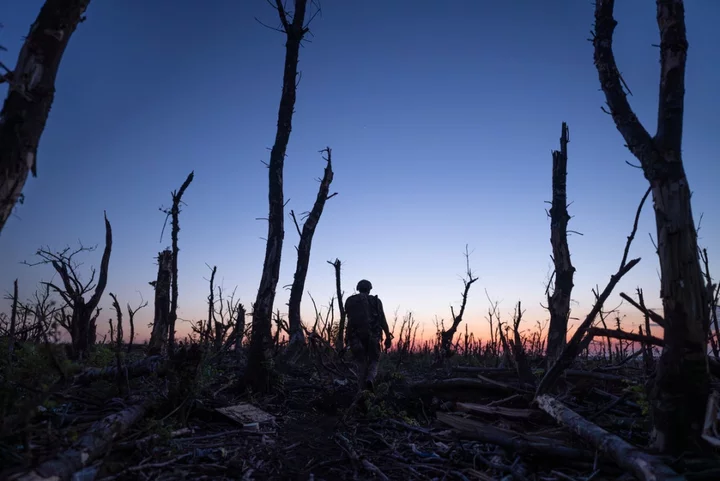
Inside Ukrainian brigade’s battle ‘through hell’ to reclaim village from Putin’s troops on way to Bakhmut
The Russian bullet struck the sergeant just above the left ear. The leader of the Ukrainian platoon was down. Headquarters radioed a battlefield promotion to the private who had called him “brother” — a man known as Courier. Courier knew the platoon's orders were to move forward through the forest, on the road to Bakhmut. He hesitated for 30 seconds near his mortally wounded commander. Maybe a minute. Then he decided: there would be no turning back as he howled “forward”. He fired toward a trench just ahead until he was sure the Russians inside would never shoot again. Then the men stumbled through the charred spindles of trees toward the village of Andriivka — the objective of the 3rd Assault Brigade since the start of Ukraine’s counteroffensive this summer, about 6 miles (10 kilometers) south of the city of Bakhmut. The sergeant, Gagarin, and other injured soldiers could only be evacuated after dark, because the Russians were also hunting downed Ukrainians. Days later, as he prepared for Gagarin's funeral, Courier predicted his own future, his pale eyes unfocused. “This forest is taking our friends away, and this is the worst,” he said. “And when I think about how far we still need to move forward ... most likely someday I will be the one to remain lying in the forest, and my friends will just go forward.” This stretch of dead forest — a couple dozen trees wide and a mile (2 kilometers) long — toward the equally dead village of Andriivka is one of countless like it on the road to Russian-controlled Bakhmut, which has now taken on huge symbolic significance in the Ukrainian counteroffensive. The Associated Press spent two weeks with the brigade for an intimate glimpse into the speed, direction and cost of the counteroffensive, through scenes witnessed in the forest and at rest, in helmet camera footage and drone video. A lot rides on their progress. Ukrainian president Volodymyr Zelensky is making his country's case to Washington on Thursday for more money and weapons, and must persuade his audience that the counteroffensive is working. The US Congress is currently weighing president Joe Biden’s request to provide as much as $24bn more in military and humanitarian aid. In an interview with “60 Minutes,” Mr Zelensky acknowledged the counteroffensive was slow, but added: “It is important that we are moving forward every day and liberating territory.” A study earlier this month by the Royal United Service Institute, a London-based think-tank, found that Ukrainian forces are averaging 700-1,200 meters of progress every five days. That gives Russian forces time to dig in and especially to mine territory as they pull back. The 3rd Assault Brigade, composed entirely of volunteers and considered one of Ukraine’s best and most experienced corps, has been fighting almost nonstop in the east since January, while less-experienced units received new training and modern weapons to fight in the south. The AP is identifying the men by their call-signs, which is both how they identify each other and a military requirement to report in-depth on the unit. Bakhmut fell to Russia in May, largely due to waves of attacks from mercenary Wagner fighters, including prison conscripts thought to have died by the hundreds. Ukraine has been trying to reclaim it ever since, hoping to deal a major psychological blow to Russia. But the soldiers sent to carry out the task are relying on largely Soviet-era armoured vehicles and older weapons. In the past month, the 3rd Assault Brigade had only been able to move a mile (2 kilometers), crossing mines and booby-trapped trenches and dodging artillery, drone-launched grenades and Russian forces within shouting distance. The questions now facing them were the same ones facing their country: Would they succeed, and at what cost? Andriivka was their goal, as important as any strip of land in Ukraine. And on 6 September, the day Courier left his commander's body behind, he and his men took over a trash-strewn trench in the middle of the forest and held it for four full days. On either side of them were mined fields that once grew wheat and now sprout only craters. During moments of rest, he leafed through a diary, written longhand by a Russian soldier: “I’ve been at war for four weeks already and I miss my mum,” Courier read. Courier asked one of the Russian prisoners who surrendered what he knew about the diary. The Russian replied: “I don’t know. I just got here today.” Maybe the author was the Russian whose body Courier propped up to protect himself from incoming fire. Or maybe he was one of the Russians who had shot Gagarin and been killed in turn a few minutes later. Courier didn't know. But by then, Gagarin was dead. And the forest kept claiming others. Shepherd, who was wounded in the leg in the morning and had to wait hours for evacuation from the battlefield, was a mask of pain. Chapa too. A grenade struck Spaniard’s helmet, and the resulting head injury would leave him helpless. Gary had no obvious injuries but was so shell-shocked he could barely make it through a conversation. Courier would go to western Ukraine and represent the platoon at Gagarin’s funeral. Gagarin, ironically named for the Russian cosmonaut who was the first human in space, was buried in his hometown of Polonne, a 550-mile (900-kilometer) drive from the battlefield. As military pallbearers walked uphill toward the churchyard, residents along the way stopped and knelt to honour the dead along flower-lined roads. One of the men carrying the casket remarked on the view from the village cemetery. “I’ve done this 56 times,” he said grimly. Social media feeds from the brigade show dozens of funeral announcements since the counteroffensive began. Gagarin’s mother sought out Courier, who was among the last to see her son alive. But he finds it hard to talk to civilians these days. “I feel like there is a gap between civilians and us now," he said. “When the war is over, I will probably just leave to fight elsewhere.” For Courier, war is complicated. He says he enjoys the dopamine rush, when he leaves the “horrible grinder," comes back to headquarters and jumps down from the armored vehicle. “You look at the sky and you look around, and you understand that you’re alive and nothing can kill you,” he said. "This is the moment. This is a feeling you cannot get anywhere else in life.” And yet he did not want to return to the strip of forest leading to Andriivka. His commanders ordered him to take 10 days’ leave, a break for a fighter whose anguish they sensed despite his outward calm. He would take the time to go fishing and clear his head. “Unfortunately, I’m only able to leave after going through hell,” he said bitterly. On the day of the funeral, 13 September, any man whole enough to fight was in the forest, including another sergeant in the platoon, Fedya. On 5 September, Fedya had been lightly wounded by a cluster munition, and the injury may have saved his life. Gagarin took his place in the assault, and that was the day he died. The last push started on 14 September. Men from other depleted units from the 3rd Assault Brigade joined in for the usual three- to four-day stint on the battlefield. After two months of inching their way forward through the stand of ash trees, maybe they would finally break through the woods to Andriivka. “How many more lives do we need to give?" Fedya asked. "How many more forests are there?” Fedya sees war as something to be perfected through a combination of study and experience. A 24-year-old with a smooth and unlined face, he wears his authority lightly, introspective but with little time or energy to spare on self-doubt or guilt. He dreams of war, and when he wakes, it is there waiting for him to move forward. “War is a science, and you have to get better at it and study. If you don’t, you have no chance of survival,” said Fedya. “The smarter you are, the more qualified you are, the better your chances of coming back alive.” On 14 September, they finally did it — more than three months after receiving the order to reclaim Andriivka. They broke through the shelling and the drone-launched grenades, firing at Russian forces who fled in front of them. The day was a blur. The Ukrainians pummeled the tiny village with artillery and then threw a smokescreen into its main street. Russian artillery hit retreating and surrendering Russian soldiers, whose bodies lay face down or curled on their sides. The last hundred meters was a mix of blood, metal, trash, spent cartridges and shredded armour. The Ukrainians went house to house, taking Russian prisoners and killing those who fought back. Even after the last of the Russian forces were expelled, Andriivka came under constant shelling, with buzzing drones on both sides. Fedya warned his men to shoot down the ones that hovered: They were the ones that dropped grenades. That night, Fedya dreamed he was cowering behind a shrapnel-pierced truck on the battlefield and was hit by artillery fire. The next morning, Fedya carried a Ukrainian flag to hoist in the reclaimed village of Andriivka. It was time to retrieve the bodies. There was the body of 19-year-old Riley, killed on the first day he ever fought. There was Zima. There were others, placed carefully into bags and carried back through the forest. The men left dozens of Russian bodies for later. Andriivka was now nothing but a pile of bricks and scorched trees with the smell of death. But it was in Ukrainian hands, and Fedya was ready to hand control to the next brigade to reclaim the next forest. He huddled in one of the few basements left and tried to explain to the incoming commander why the fight for this broken town was worth it. “Look at these fields, this forest. Everything grows again," he said. "The cities that we reclaim, they will be rebuilt. ... We will clear out all that’s left of the Soviet Union. ... The war could be the best thing to happen, in the sense that everything can start fresh.” Ukrainian officials said this month’s battle’s for the road to Bakhmut may have taken as many as three Russian brigades out of combat, as cited in an assessment Tuesday by the Institute for the Study of War. But Fedya was ready to leave. “I’m tired of this forest. I want to go home. I want to wash and sleep,” he said with a curse. “Until morning. And in the morning, I’ll come back.” Hinnant reported from Paris. Alex Babenko contributed to this story. Read More Ukraine war’s heaviest fight rages in east - follow live Charity boss speaks out over ‘traumatic’ encounter with royal aide 3 South Africa navy personnel die after they are swept off a submarine deck during supply operation Kenya's president is committing his country to lead a multinational force to Haiti to combat gangs Singapore police uncover more gold bars, watches and other assets from money laundering scheme
2023-09-21 16:49
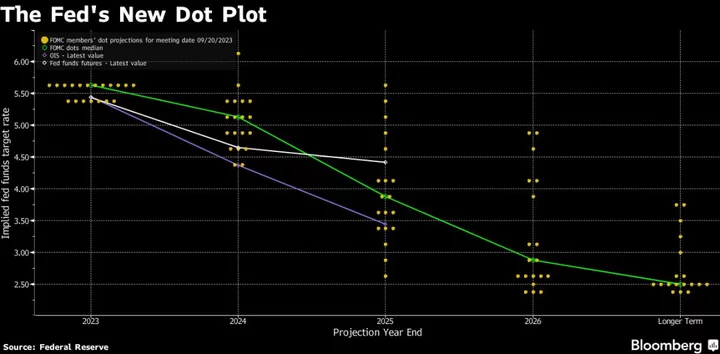
Stocks Retreat as BOE Cliffhanger Follows the Fed: Markets Wrap
Stocks dropped after the Federal Reserve signaled interest rates will be higher for longer and as traders awaited
2023-09-21 16:26
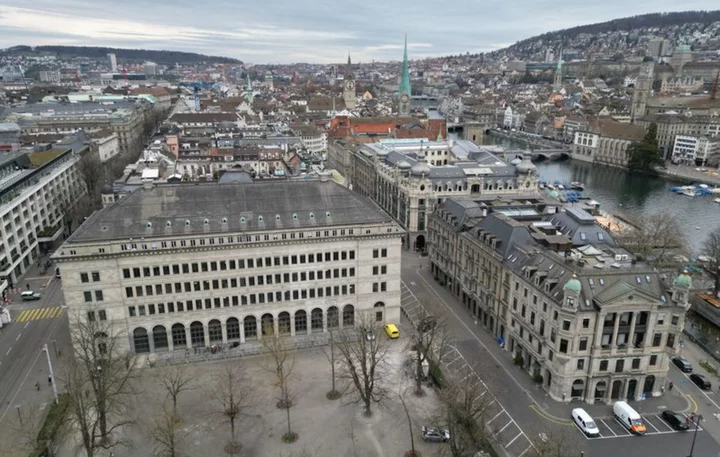
SNB leaves rates unchanged, Sweden and Norway hike again
LONDON (Reuters) -In a big day for central banks across Europe on Thursday, Switzerland shocked markets by leaving its interest
2023-09-21 16:20
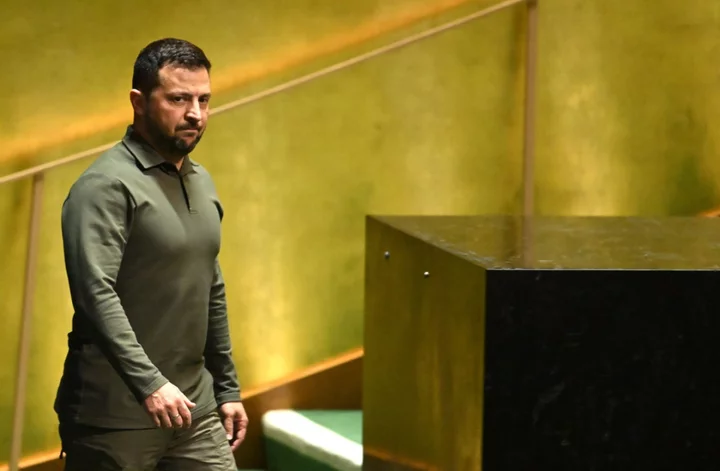
Russian official tries to disrupt Zelensky’s speech at UN and gets told to ‘stop the war’
The Russian envoy attending the United Nations Security Council meeting on president Vladimir Putin’s behalf was told to “stop the war” after he objected to Ukrainian president Volodymyr Zelensky’s speech on Wednesday. Russia’s ambassador to the UN Vassily Nebenzia protested the council president’s decision to allow Mr Zelensky to speak before the 15 council members. “We would like to ask you on what basis you are proposing to allow president Zelensky to speak before the members of the council, many of whom are represented by the heads of states and governments,” the Russian envoy said, accusing the Albanian state of demonstrating “open disregard for the procedures and practices of the UN security council”. Albanian prime minister Edi Rama shot back at the Russian leader: “I must say that coming from you all this lecture of violating the rules in this building is quite an impressive shot.” “You stop the war and president Zelensky will not take the floor,” he said, after noting the objection flagged by the Russian leader over the Ukrainian leader speaking before the council members had addressed the meeting. Mr Rama also cited the council rule allowing a non-member to speak first and added that “this is not a special operation by the Albanian presidency”, eliciting laughter with a quip about Russia’s insistence on referring to its offensive against Ukraine as a “special military operation”. Another heated exchange erupted at the table after Mr Nebenzia referred to Mr Rama as Albania’s prime minister and a Nato member instead of as the council president but Mr Rama declared: “I take note, and we’ll continue with our session.” Shortly after, Mr Zelensky took to X and thanked the Albanian leader for “correctly handling Russia” as he shared a video clip of the heated exchange. “Dear @EdiRamaal, today at the UNSC you showed the world how to correctly handle Russia, its lies, and its hypocrisy. I thank you for steering the presidency in such a principled manner,” he said on Twitter. The second day of the UN meeting in New York was flooded with speculations on the Ukrainian president and Russia’s top diplomat Sergei Lavrov clashing for the first time in person since the invasion in Ukraine started in February last year. The two were either expected to clash, speak or totally avoid each other. In the end, Mr Zelensky and Sergei Lavrov avoided staring each other down across the UN Security Council’s famous horseshoe-shaped table as the former left before Mr Lavrov arrived. Mr Zelensky denounced Russia as “a terrorist state” while Russian ambassador Vassily Nebenzia sat facing him near the other end of the table’s arc. As the Ukrainian president launched into his remarks, the Russian briefly looked at his phone, then tucked the device away. Mr Zelensky left before Mr Lavrov’s arrival, which happened as US secretary of state Antony Blinken was accusing Russia of having “shredded” key provisions of the UN Charter. Mr Lavrov blamed the West for “a shaking of global stability as well as the exacerbation and the fomenting of new hotbeds of tension”. He said “the US and its satellites have egregiously and openly interfered in the domestic affairs of Ukraine,” heightening the risks of global conflict. He insisted that Russia has “fully” respected the provisions of the UN charter “in an interconnected way”. Read More Ukraine-Russia war – live: Zelensky says UN ‘incapable’ of stopping Putin’s ‘criminal aggression’ Ukraine kills 130 Russian soldiers in single day in southern push Ukraine rejects defective Leopard 1 tanks from Germany after finding ‘serious faults’ Inside a Ukrainian brigade’s battle ‘through hell’ to reclaim a village on the way to Bakhmut Russian strikes cities from east to west Ukraine, starting fires and wounding at least 14
2023-09-21 15:53
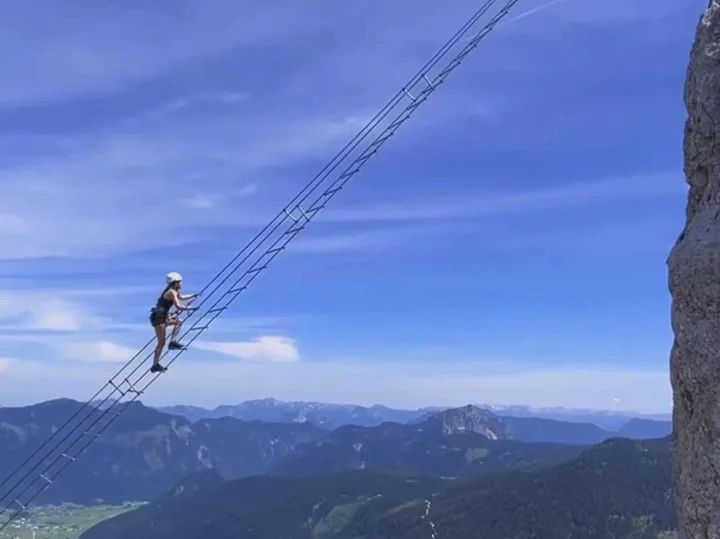
British tourist falls 90m to death while scaling ‘stairway to heaven’ ladder in Austria’s Dachstein mountains
A British tourist plunged 90m to his death from a ladder dubbed "stairway to heaven" in the picturesque Dachstein Mountains in Austria. The 42-year-old tourist was climbing the mountain in the North Limestone Alps when he fell off the end of the ladder. The 40-metre ladder, popular among thrill seekers, is run by Inter-Sport and is referred to as Via-Ferrata – Italian for the "iron way". It connects the lower portion of the Donnerkogel Mountain to its Grosser Donnerkogel part. Investigators ruled out any third-party negligence in the man's fall, The Sun reported. Two helicopters were deployed at the scene and the man's body was retrieved from the gully beneath the ladder. Thousands of climbers have shared their experience of ascending the popular ladder, where climbers are attached to harnesses for their safety. The ladder was promoted as the new "top" tourist attraction on the Zwieselalm for "climbing enthusiasts” by the Dachstein region tourist website. The climb was described as "not ideal for beginners". “The via ferrata on the Donnerkogel at the Zwieselalm in Gosau at Dachstein presents amazing and breathtaking views of the glacier of the Dachstein, as well as of the highest mountain of Austria – the Grobglockner,” according to the description on the tourism website. “The ladder to heaven was built by Outdoor Leadership with their professional climber Heli Putz.” An athlete was pictured balancing on the ladder with no harness in 2020, according to the outlet. The same year a British tourist, Madalyn Davis, died after falling from a cliff in Sydney’s eastern suburbs. Read More Amsterdam urges British tourists looking for a ‘messy night’ to stay away Magaluf main strip shut down after drunken Brits cause havoc over weekend British tourist killed in Benidorm street brawl
2023-09-21 15:46
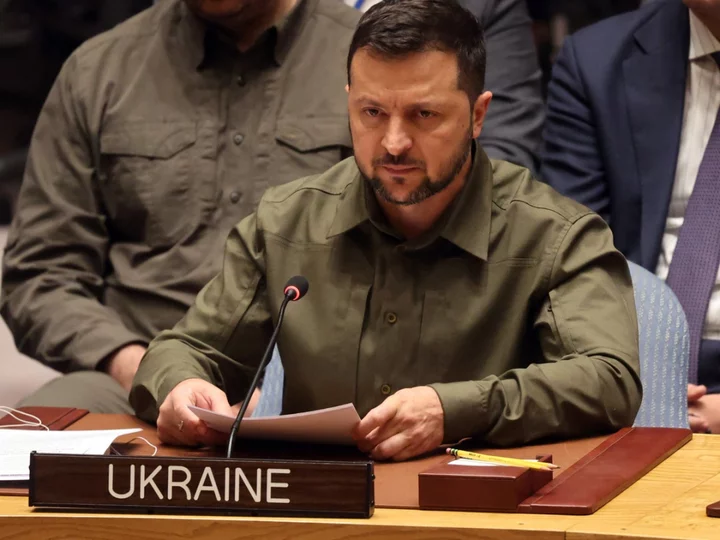
Ukraine-Russia war – live: Poland to stop sending Kyiv weapons as Putin unleashes strikes on six cities
Russia fired deadly missiles across six cities in Ukraine this morning with two reported dead, fatalities are expected to rise as dozens are trapped under rubble. The strikes coincided with the International Day of Peace and United Nations General Assembly summit in New York where President Volodymyr Zelensky delivered a speech and presented a ‘peace formula’ Putin’s troops targeted the southern city of Kherson, Kyiv, the Slobidkysi district of Kharkiv, Cherkasy in central Ukraine, an industrial zone in the region of Lviv and the northwest city of Rivne. Moscow targeted commercial and residential buildings, injuring atleast 21, as well as a nine-year-old girl. Blazing fires are causing further damage The attack comes as Poland said they will stop providing Ukraine with further weapons in their military efforts against Russia. Polish Prime Minister Mateusz Morawiecki said the decision was not related to a temporary ban on Ukrainian grain imports despite the escalation of diplomatic disputes. Morawiecki said: “We are no longer transferring any weapons to Ukraine because now we will arm ourselves with the most modern weapons,” he said in an interview on the private TV broadcaster Polsat News late Wednesday. Read More Ukraine rejects defective Leopard 1 tanks from Germany after finding ‘serious faults’ Zelensky tells UN to not make deals with ‘evil’ Russia: ‘Ask Prigozhin whether Putin can be trusted’ How Ukraine’s battle for the Black Sea is inflicting serious pain on Putin’s forces
2023-09-21 14:52
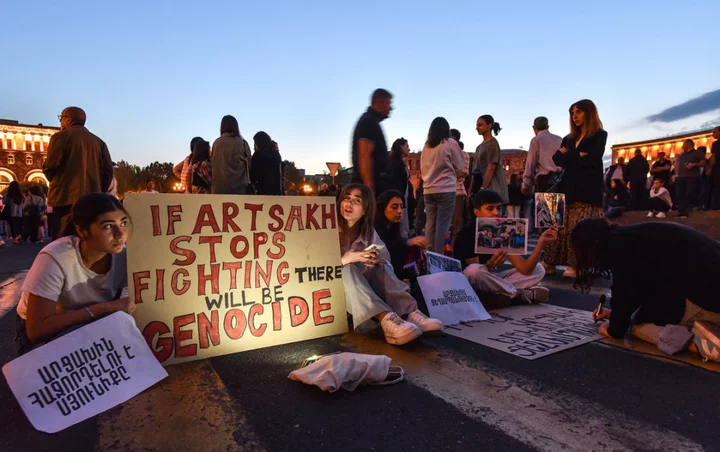
Azerbaijan hails end of Armenian separatists’ advance in Nagorno-Karabakh
Azerbaijan's president on Wednesday hailed the country's restoration to "full sovereignty" over the breakaway Nagorno-Karabakh region as ethnic Armenian forces agreed to lay down their weapons. Authorities in the Armenian region declared that the local defence force will disarm and withdraw all weaponry under a Russia-mediated ceasefire following the latest bout of fighting in the decades-long separatist conflict. President Ilham Aliyev in a televised address hailed his soldiers, while offering the ethnic Armenians of the Nagorno-Karabakh region prospects of cooperation, reconciliation and joint development. "In just one day, Azerbaijan fulfilled all the tasks set as part of local anti-terrorist measures" and "restored its sovereignty", the president said, adding he now wished to integrate Karabakh's population and turn the region into "paradise". He said Azerbaijan had nothing against Karabakh's Armenian people – "they are our citizens" – but only against their "criminal" separatist leadership. His words appeared aimed at addressing allegations by Armenian leaders that Baku planned to "ethnically cleanse" Karabakh's 120,000-strong Armenian population amid decades of mistrust between the two nations. The Azerbaijan army on Tuesday launched an "anti-terrorist" operation, unleashing an artillery barrage and drone attacks against outnumbered and undersupplied pro-Armenian forces. Nagorno-Karabakh human rights ombudsman Gegham Stepanyan said at least 200 people, including 10 civilians, were killed and more than 400 others were wounded in the fighting. He said earlier that children were among the dead and wounded. Russia and America condemned the “bloodshed” and called for an “immediate” end to hostilities between Azerbaijan and Armenians in the contested region. French president Emmanuel Macron spoke with Mr Aliyev and "condemned Azerbaijan's decision to use force ... at the risk of worsening the humanitarian crisis" and "compromising ongoing efforts to achieve a fair and lasting peace", his office said. Russian peacekeepers in a statement on Thursday said they have taken in about 5,000 Karabakh residents after evacuating them from dangerous areas. Thousands of Armenians also gathered at the airport of the regional capital, Stepanakert, in a bid to flee the conflict. Armenian prime minister Nikol Pashinyan in an address to the nation said the fighting decreased following the truce, emphasizing that Russian peacekeepers in Nagorno-Karabakh are fully responsible for its residents’ security. "If peacekeepers have proposed a peace deal, it means that they completely and without any reservations accepted the responsibility of ensuring the security of Nagorno-Karabakh Armenians, and provide the conditions and the rights for them to live on their land and in their homes safely," he said, according to the Associated Press. Mr Pashinyan, who has previously recognised Azerbaijan's sovereignty over Nagorno-Karabakh, said Armenia wouldn't be drawn into the fighting. He said his government didn't take part in negotiating the deal, but "has taken note" of the decision made by the region's separatist authorities. Protesters rallied in the Armenian capital of Yerevan for a second straight day Wednesday, blocking streets and demanding that authorities defend Armenians in Karabakh. Azerbaijan's move to reclaim control over Nagorno-Karabakh raised concerns that a full-scale war in the region could resume between the two nations, which have been locked in a struggle over Nagorno-Karabakh since a separatist war there ended in 1994. During another war that lasted for six weeks in 2020, Azerbaijan reclaimed broad swaths of Nagorno-Karabakh and adjacent territories that were held for decades by Armenian forces. More than 6,700 people died in the fighting, which ended with a Russian-brokered peace agreement. Moscow deployed about 2,000 peacekeeping troops to the region. Read More Ceasefire agreed after Azerbaijan unleashes military strikes in Nagorno-Karabakh Why new fighting in Azerbaijan's troubled region may herald a new war Nagorno-Karabakh: Fears of full-scale war as Azerbaijan launches attack on Armenian positions The Body in the Woods | An Independent TV Original Documentary The harrowing discovery at centre of The Independent’s new documentary
2023-09-21 13:29

Poland to stop supplying weapons to Ukraine over grain row
It comes as tensions rapidly escalate between the two countries - historically close allies.
2023-09-21 13:21
